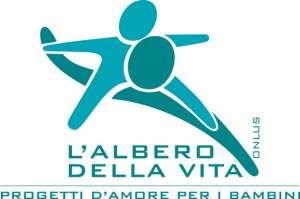 There is an increasing interest in studying the association between spirituality and addiction, and the effect of mindfulness on recovery. There have been some attempts at exploring the mediators of the association, but seldom in the context of Christian contemplation and rarely within a single theoretical framework of psychology. This article reports two case studies from an intervention study carried out in Nairobi, Kenya, that suggest that the Christian contemplative practice has the potential to reduce alcohol misuse while facilitating the emergence of a three-dimensional religious-spirituality model involving the character strengths of self-awareness, self-regulation, humility, and leading to forgiveness, social responsibility, and social intelligence.
There is an increasing interest in studying the association between spirituality and addiction, and the effect of mindfulness on recovery. There have been some attempts at exploring the mediators of the association, but seldom in the context of Christian contemplation and rarely within a single theoretical framework of psychology. This article reports two case studies from an intervention study carried out in Nairobi, Kenya, that suggest that the Christian contemplative practice has the potential to reduce alcohol misuse while facilitating the emergence of a three-dimensional religious-spirituality model involving the character strengths of self-awareness, self-regulation, humility, and leading to forgiveness, social responsibility, and social intelligence.
Selvam, S.G. (2015). Character strengths in the context of Christian contemplative practice facilitating recovery from alcohol misuse: Two case studies. The Journal of Spirituality in Mental Health, 17(3),190-211. DOI: 10.1080/19349637.2015.1053302.
To download the article CLICK HERE.
Author: selvam
Post-traumatic Growth on the Road to Emmaus: Psychological reading of Lk 24:13-35
 According to Tedeschi and Calhoun, trauma is a person-event complex that threatens the existing ‘schema’ that people have in their mind. After a prolonged process of ‘rumination’, the people might not want to change their schema and thus experience PTSD. Alternatively, if they accommodate or assimilate the experience into their schema, then the result is coping or resilience respectively. On the other hand, if they ‘integrate’ the adverse experience into their schema by reframing it then the outcome is wisdom.
According to Tedeschi and Calhoun, trauma is a person-event complex that threatens the existing ‘schema’ that people have in their mind. After a prolonged process of ‘rumination’, the people might not want to change their schema and thus experience PTSD. Alternatively, if they accommodate or assimilate the experience into their schema, then the result is coping or resilience respectively. On the other hand, if they ‘integrate’ the adverse experience into their schema by reframing it then the outcome is wisdom.
Basing itself on Tedeschi and Calhoun’s model of posttraumatic growth, the present paper reads the story of the two disciples on the road to Emmaus as a process of dealing with a traumatic experience – the death of the Messiah and the disappearance of his body. Jesus listens to their version of the story, offers […]
13. Sonntag im Jahreskreis – Lesejahr B
 13. Sonntag im Jahreskreis – Lesejahr B
13. Sonntag im Jahreskreis – Lesejahr B
„Talitha, kum!“ (Mk 5, 41)
Dies ist die Geschichte einer jungen Frau, die zu früh gestorben ist. Ich lernte sie kennen, als ich als junger Priester in einer ländlichen Gegend in Tansania tätig war. Ich hatte einen Besuchsdienst für Kranke und Bettlägerige angefangen. Jeden Freitag ging eine Katechetin zum Krankenhaus und stellte eine Liste der Kranken zusammen, die einen Priester sprechen wollten. Dazu kamen die Kranken, die von der Gemeinde benannt worden waren.
Eines Tages wurden wir zu einer jungen Frau gerufen. Sie mag 18 Jahre alt gewesen sein. Ich will sie Neema nennen. Neema was bettlägerig und sprach mit sehr schwacher Stimme. Geistig aber war sie ganz wach. Vor meinem Segensgebet unterhielten wir uns ein wenig. Ich fragte sie, was ihr fehle. Sie sagte nichts, zeigte nur […]
Pastoral care of the family in the light of sound psychology
A paper presented at the Tangaza Conference on Family – 19 May 2015
Abstract:
Moral philosophers and theologians argue that the human family is governed by natural law. While philosophers might rationally argue for this, theologians resort to revelation. In theologians’ understanding human family is part of the plan of God. Can scientific psychology provide some empirical evidence for “the natural law” argument? If yes, how could psychology enhance the pastoral care of families today? The aim of the present conceptual paper is to offer some contemporary evidence from evolutionary psychology and neurobiology to suggest that, after all, the human brain may be hire-wired for the family. It will go on to reflect on the role of the family in the growth of a Christian in the light some emerging insights from psychology. The later part of the paper will focus on the association between individuals’ relationship in the family and their […]
Training Manual for Psycho-Social Support
 The Institute of Youth Studies (IYS) has networked with an Italian NGO (Fondazione L’Albero della Vita – FADV) in order to develop a training manual for use in the 26 Kenyan government run statutory children institutions. The training will target over 120 staff who are employed in the juvenile remand and rehabilitation institutions, so as to build staff capacity in offering psycho-social support to their wards.
The Institute of Youth Studies (IYS) has networked with an Italian NGO (Fondazione L’Albero della Vita – FADV) in order to develop a training manual for use in the 26 Kenyan government run statutory children institutions. The training will target over 120 staff who are employed in the juvenile remand and rehabilitation institutions, so as to build staff capacity in offering psycho-social support to their wards.
FADV approached IYS to carry out a needs assessment in collaboration with the University of Padova, and to develop the training manual. The NGO has offered a sum of Ksh.250,000 to IYS for this consultancy service.
The trainings will be also carried out by IYS, funded by CEFA – another Italian NGO that works with the Kenya government in the Children Services.
I have the been key person in […]